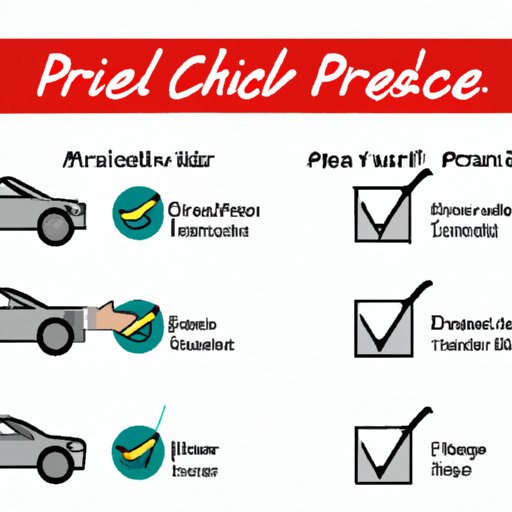
The Ultimate Guide on How to Buy a Car from a Private Seller
Buying a car can be a difficult process, but purchasing one from a private seller can make the process easier and more personal. Private sellers can often provide lower prices, and the car-buying experience is often less stressful than buying from a dealership. However, there are risks involved, so it’s important to be diligent in your research and preparation.
Step-by-Step Guide
Research and Find Potential Cars
First, you need to research and find potential cars. Start by looking online at classified ad sites and used car marketplaces, such as Craigslist, Facebook Marketplace, and Autotrader. Also, ask around in your community and with friends to see if anyone knows of a car for sale.
When you find a car that interests you, look up its value and history online. Use resources such as Kelley Blue Book and Carfax to get an estimate of how much the car is worth and to learn more about its history, such as previous accidents or ownership information.
Set Up an Appointment with the Seller
Once you find a car that interests you, contact the seller and set up an appointment. When you meet, make sure to inspect the car closely and also take it for a test drive.
Look for Red Flags During the Test Drive
Before the test drive, ask the seller to start the car and observe its condition. Inspect the exterior of the car, checking for any damage or rust. During a test drive, listen for any unusual noises, and pay attention to how the car handles on the road.
Negotiate the Price
Once you’ve inspected the car and taken it for a test drive, it’s time to negotiate the price. Make sure you research and know the market value of the car before entering into negotiations. Keep in mind that private sellers often have more flexibility in price than car dealerships.
Finalize the Purchase
Once you’ve agreed on a price, it’s time to finalize the purchase. Be sure to have all the necessary paperwork, including the title, registration, and bill of sale. You may also want to have a mechanic inspect the car before finalizing the purchase.
Pre-Purchase Checklist
Before purchasing a car from a private seller, it’s important to check off several items on your ‘pre-purchase checklist.’ This checklist should include the following:
- Inspect the car’s condition: Look for any signs of damage, wear and tear, rust, or corrosion.
- Check the car’s history: Use tools such as Carfax to verify the car’s ownership history, previous accidents, and maintenance records.
- Get an inspection: Consider bringing the car to a trusted mechanic for an inspection before purchasing.
- Verify the seller’s identity: Make sure that the seller’s name matches the name on the title and registration.
- Ensure the legality of the sale: Verify that the seller has the legal right to sell the car.
Price Negotiation Tips
When negotiating the price of a car with a private seller, it’s important to keep in mind the following tips:
- Research the car’s value: Use tools such as Kelley Blue Book to get a sense of the value of the car you’re interested in.
- Be informed: Know the seller’s motivations for selling and any issues with the car.
- Be prepared to walk away: Don’t be afraid to walk away if the seller is not willing to negotiate.
- Use discretion: Don’t reveal too much about your financial situation, as this can weaken your negotiation position.
Red Flags to Look For
When buying a car from a private seller, make sure to watch out for the following red flags:
- Inconsistent stories about the car’s history
- Obvious physical damage
- Seller who is in a hurry to close the deal
If any of these red flags are present, it may be a good idea to walk away from the deal.
Handling the Paperwork
When buying a car from a private seller, it’s important to make sure that all the necessary paperwork is completed properly. This includes:
- Transferring the title and registration
- Creating a bill of sale
- Obtaining insurance
You want to make sure you have all the legal aspects of the sale covered.
Pros and Cons of Buying a Car from a Private Seller
There are several pros and cons to buying a car from a private seller.
Pros
- Lower prices: Private sellers often charge less than dealerships
- Personal experience: Buying from a private seller can be a more enjoyable experience, as there is less pressure and more communication.
Cons
- Risks of unknown history: Private sellers may not disclose everything about the car’s history
- Risks of unknown problems: Private sellers may not disclose all issues with the car
Conclusion
Buying a car from a private seller can be a great option, but it does come with risks. By following the step-by-step guide, checking items off the pre-purchase checklist, being aware of red flags, negotiating the price, and handling the paperwork properly, you can minimize the risks and enjoy a successful car-buying experience.




